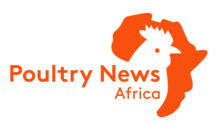Nigeria’s egg sellers and distributors have firmly dismissed allegations from poultry farmers accusing them of inflating egg prices in the local market. The Egg Sellers and Distributors Association of Nigeria (ESDAN) insists that they are not responsible for the rising cost of eggs but are instead working tirelessly to keep prices fair and stable amid the nation’s ongoing economic pressures.
According to Mrs. Olaide Graham, the President of ESDAN, the accusations by poultry farmers are not only misleading but unfair to distributors who are already struggling with high operational costs. She explained that the association’s primary goal has always been to ensure that eggs remain accessible to the average Nigerian family despite inflation, fuel cost increases, and feed price surges affecting the poultry industry.
Currently, Graham revealed, a crate of eggs sells for around ₦5,500 in most parts of the country—a price she described as reasonable compared to other sources of animal protein. “When you look at the nutritional and economic value, eggs still remain the cheapest protein option in Nigeria. You get thirty pieces of eggs in a crate at a price lower than what it would cost to buy a few pieces of meat or fish,” she said.
Graham strongly refuted claims that distributors were manipulating the market for profit. She described such assertions from some poultry farmers as “blatant lies and an attempt to divert attention from the real causes of price instability.” She emphasized that ESDAN has made several efforts to collaborate with poultry producers to stabilize prices, but those efforts have often been ignored. According to her, most farmers prefer to control both production and pricing, making it difficult for distributors to operate efficiently.
She added that most people don’t realize how complicated the distribution process is. She pointed out that distributors deal with a variety of issues, such as shifting demand, product spoiling, and transportation expenses. “Goods like eggs are extremely perishable,” she stated. We occasionally purchase them from farmers on credit, but when prices fall or unsold eggs go bad, we lose money. Despite taking the greatest risks in the supply chain, we are unfairly held accountable.
Graham added that intermediaries or “middlemen” play a crucial role in ensuring eggs reach retailers and consumers efficiently. Without them, she argued, supply would be inconsistent and more expensive. She accused some farmers of hypocrisy, saying they criticize middlemen yet refuse to sell directly to distributors. “If farmers truly want to remove middlemen, then they should be willing to sell to us directly at fair prices,” she stated.
Meanwhile, poultry farmers maintain that distributors and retailers inflate egg prices once they buy from farms, claiming that this practice discourages consumers and hurts the overall poultry market. This blame game between producers and distributors has created tension within the poultry value chain, with both sides pointing fingers instead of seeking a joint solution.
Graham, however, urged for cooperation and mutual understanding, noting that a stable market benefits both farmers and distributors. She called for regular dialogue, transparent pricing, and government intervention to regulate market practices and improve supply chain efficiency.
ESDAN insists that it is committed to maintaining affordable prices for Nigerian consumers and promoting unity in the poultry industry. Graham emphasized that sustainable growth can only be achieved if all players—farmers, distributors, and government agencies—work together to create fair pricing structures, reduce operational costs, and eliminate mistrust. Until that happens, she warned, Nigeria’s poultry industry will continue to struggle with instability and unnecessary conflicts over pricing.



